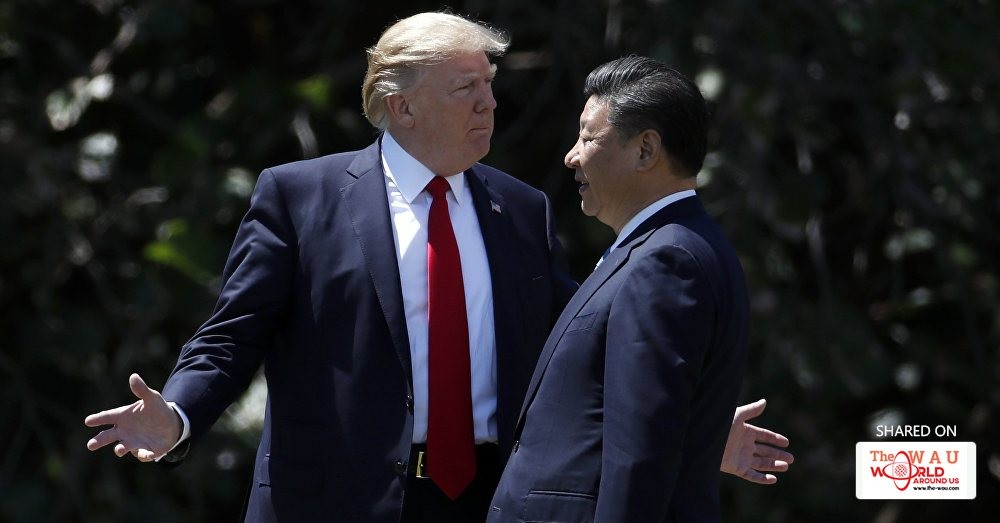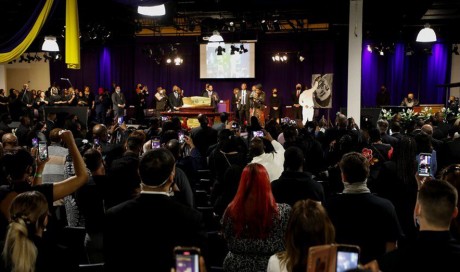The United States and China has serious political differences, but both contries continue to rely on their unprecedented trade cooperation which helps keep the tensions under control.
Earlier this week, US media reported that Chinese jet fighters chased away an American surveillance plane in the East China Sea, in the third such encounter in recent months.
The Chinese J-10 aircraft forced the US pilot to take evasive action to avoid a collision on Sunday, NBC Nightly News reported, citing US officials. The US plane was conducting routine operations in international waters near Qingdao, according to the report.
The Pentagon described the incident as unsafe, adding that the US aircraft was forced to change course. In response, Beijing said that such activities are a "threat" to China’s security.
"US military vessels and planes have long been carrying out frequent surveillance activities close to China's coastal waters. [Such activities] threaten China's security and works against building mutual trust between the two militaries," Chinese Foreign Ministry Spokesperson Lu Kang said at a press conference.
Matter of Principle
According to Beijing, such an aerial encounter 140 kilometers from Qingdao, a major port, creates risks not only for the disputed territories. In fact, China sees such activities as interference by Washington in a territorial dispute to which the US is not a party.
In turn, Washington continues to claim that Beijing’s policy in the region is aimed at taking control over territories belonging to other nations.
The US says that by standing against China in this situation, Washington protects the interests of the Philippines and Vietnam. At the same time, RIA Novosti political observer Igor Gashkov underscored the standoff against China is also a matter of principle for the US.
In January, US State Secretary Rex Tillerson said, "The island building in the South China Sea itself in many respects in my view is akin to Russia’s taking of Crimea."
Trump’s Pressure Over China
According to Gashkov, the political tensions between Washington and Beijing reflect the difficulties both sides are facing in their bilateral cooperation. Turnover between the US and China reached hundreds of billions of dollars, but Chinese exports to the US exceed China’s imports from the US.
"This disparity comes not only from the law of supply and demand. Conditions for foreign businessmen are much different from those in the US. American companies cannot have full access to the Chinese local market, including the financial market," Gashkov wrote in an op-ed.
During his campaign, US President Donald Trump insisted that China is not playing fair on trade. China was accused of stealing intellectual property and taking aggressive protectionist measures against foreign companies. Trump pledged to impose tariffs of up to 45 percent on Chinese imports. In addition, he said Washington would boost ties with Taiwan.
However, having assumed power, Trump realized he could not make good on all of his campaign promises, but at the same time did not completely go back on his words.
"In particular, the US knows that China cannot force North Korea to abandon its nuclear program and this is why Trump has resorted to threating China with new sanctions, including against its steel producers. Finally, US military planes are flying again over the disputed waters," Gashkov wrote.
Trump Lacks a Consistent Approach to China
In an interview with Sputnik, Pyotr Mozias, an expert in Chinese studies and Associate Professor at the Higher School of Economics University, underscored that US-China economic relations influence global politics.
"The current situation is unprecedented. Bipolar relations between these two powers are currently taking shape. They have already begun dividing their spheres of influence. However, their economic interdependence helps prevent a serious conflict between the US and China. Bilateral tensions between them are on the rise, but their trade ties allow for easing them," Mozias pointed out.
According to the expert, relations between Washington and Beijing are based on a "mixture of cooperation and rivalry."
"[Former US President Barack] Obama’s policy towards China was cautious, but it was aimed at restoring US influence in Asia. As for Trump, he is still unable to offer a consistent approach. The mechanism under the new US president, including policy towards China, has not formed yet," Mozias said.
Share This Post












